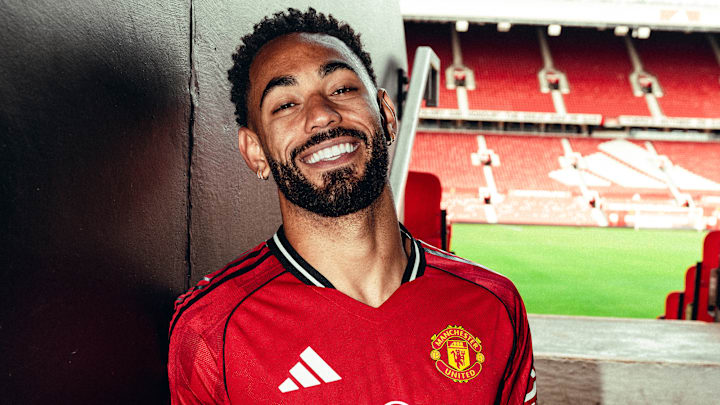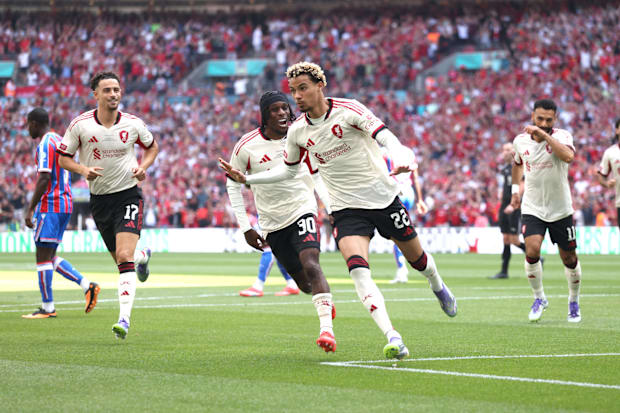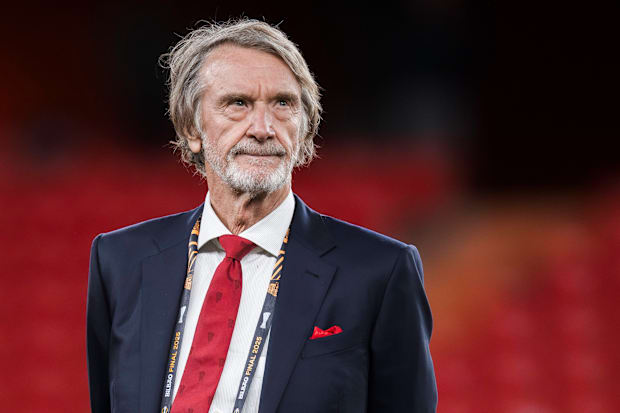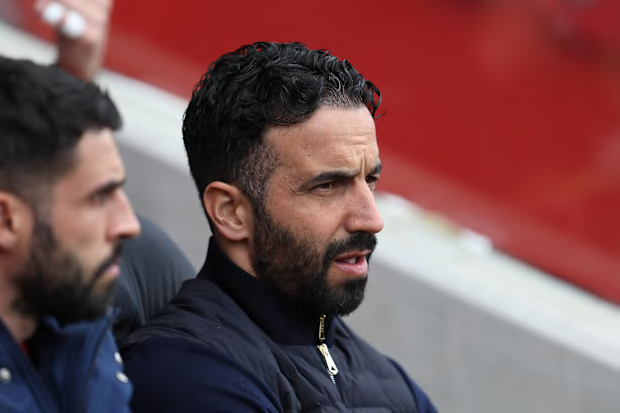Man Utd's Secret Formula to Unlock £200 Million Transfer War Chest This Summer

Manchester United's downward spiral across the past dozen years has been marked by poor management and excessive transfer market expenditure.
The former powerhouse has remained among the league's biggest spenders while attempting to recapture past success, yet chaotic and frequently uncoordinated recruitment strategies have pushed them deeper into turmoil. Regrettably for the Red Devils, it seems the sole path forward involves additional acquisitions.
United suffered tremendous anguish during the previous campaign as they dropped to 15th position in the Premier League standings and failed to qualify for European competition entirely—two troubling financial elements that require attention this summer. They have begun addressing their problems in the marketplace, with Ruben Amorim receiving substantial support from the new sporting leadership.
However, after co-owner Sir Jim Ratcliffe seriously cautioned that funds might be depleted by late 2025, reducing expenditure across all departments and eliminating one-third of non-football personnel, investing so heavily in transfers once more, without securing player departures, came as a surprise.
How Much Man Utd Have Spent So Far This Summer

United's expenditure has almost entirely focused on strengthening their attacking options, beginning with their £62.5 million ($84.9 million) purchase of Matheus Cunha. The Red Devils were compelled to pay Wolverhampton Wanderers the complete release clause amount in the Brazilian's contract following his February extension with the Old Gold.
Discussions proved much more challenging with Brentford regarding a deal for Bryan Mbeumo, with lengthy negotiations ultimately resulting in both parties agreeing on a £65 million ($88.2 million) base price plus £6 million ($8.1 million) in additional clauses. There were immediate claims that United had paid excessive amounts for the Cameroon international following intense negotiations with the Bees.
Benjamin Šeško represents United's most recent expensive acquisition after a relatively swift agreement was completed last week. The Red Devils have paid RB Leipzig £66.3 million ($90 million) and may spend an additional £7.7 million ($10.5 million) in performance bonuses—a substantial amount comparable to what they spent on Ramus Højlund in 2023, whom they are now attempting to offload.
Diego León represents a future investment and has joined Amorim's squad for a modest fee. He has cost United £3.3 million ($4.5 million) initially, with an additional £3.7 million ($5 million) in possible incentives.
Excluding performance bonuses, United's summer expenditure reaches a staggering £196.5 million, potentially rising to £214.5 million if additional incentives are activated. Given they have yet to generate any revenue through permanent player departures, that represents an enormous investment.
Man Utd's 2025 Incomings
Player | Joined From | Fee |
|---|---|---|
Benjamin Šeško | RB Leipzig | £74 million ($100.5 million) |
Bryan Mbeumo | Brentford | £71 million ($96.4 million) |
Matheus Cunha | Wolves | £62.5 million ($84.8 million) |
Diego León | Cerro Porteño | £7 million ($9.5 million) |
How Much the Rest of the Premier League Has Spent

Liverpool have emerged as unexpected big spenders this summer while pursuing English football dominance under Arne Slot, investing £253.4 million ($343.9 million) in guaranteed payments. This encompasses a potentially record-breaking British fee for attacking midfielder Florian Wirtz, plus significant investments in Hugo Ekitiké, Milos Kerkez and Jeremie Frimpong.
Chelsea trail closely behind the Reds, maintaining their characteristic market extravagance. £241.3 million ($327.5 million) has departed club finances for summer reinforcements, though the Blues have successfully recovered most of that through player sales in recent weeks.
United rank third after investing £196.5 million ($266.7 million) but lead the Premier League in net spending due to difficulties offloading talent. Their net expenditure remains £196.5 million, contrasting with Liverpool's £84 million ($114 million) and Chelsea's £41.2 million ($55.9 million).
Arsenal and Manchester City both aim to challenge defending Premier League champions Liverpool and approach United's total investment. The Gunners have committed £193.5 million ($262.6 million) while City spent £152.6 million ($207.1 million) on new signings, with neither generating substantial player sale revenue yet.
Premier League's Biggest Spenders—Summer 2025
Rank | Club | Total Spend |
|---|---|---|
1. | Liverpool | £253.4 million ($343.9 million) |
2. | Chelsea | £241.3 million ($327.5 million) |
3. | Man Utd | £196.5 million ($266.7 million) |
4. | Arsenal | £193.5 million ($262.6 million) |
5. | Man City | £152.6 million ($207.1 million) |
*Data correct as of August 14, 2025
Are Man Utd in Danger of Breaking PSR Rules?

The Premier League's Profit and Sustainability Rules (PSR) mandate that clubs can only register losses of £105 million ($142.6 million) across a three-year timeframe. According to Manchester Evening News, United remain "not overly worried about violating PSR regulations for the current cycle", which extends back to the 2023–24 season.
Nevertheless, given elevated salaries and substantial amortisation expenses, it's essential that United balance this summer's investments through player departures. Currently, they have only loaned Marcus Rashford to Barcelona, which will save the club £10 million (13.6 million) in wages alone, though more action is required before the September 1 deadline.
Jadon Sancho, Antony and Alejandro Garnacho represent the most likely revenue sources before the window closes, with the latter potentially generating around £40 million ($54.3 million) in pure profit as a homegrown talent. Tyrell Malacia and Højlund are additional players who could provide valuable funds.
How Much More Can Man Utd Spend This Summer?

The sum United can invest during the transfer window's remaining weeks seems completely reliant on sales and eliminating high-earning players from the payroll. They understand PSR compliance is mandatory and must generate revenue before further squad enhancement.
Consequently, the precise amount United can spend before the window closes remains unclear, but any major transactions will require facilitated departures. Amorim will be eager for fringe players to secure essential exits and potentially create funds for new arrivals.
